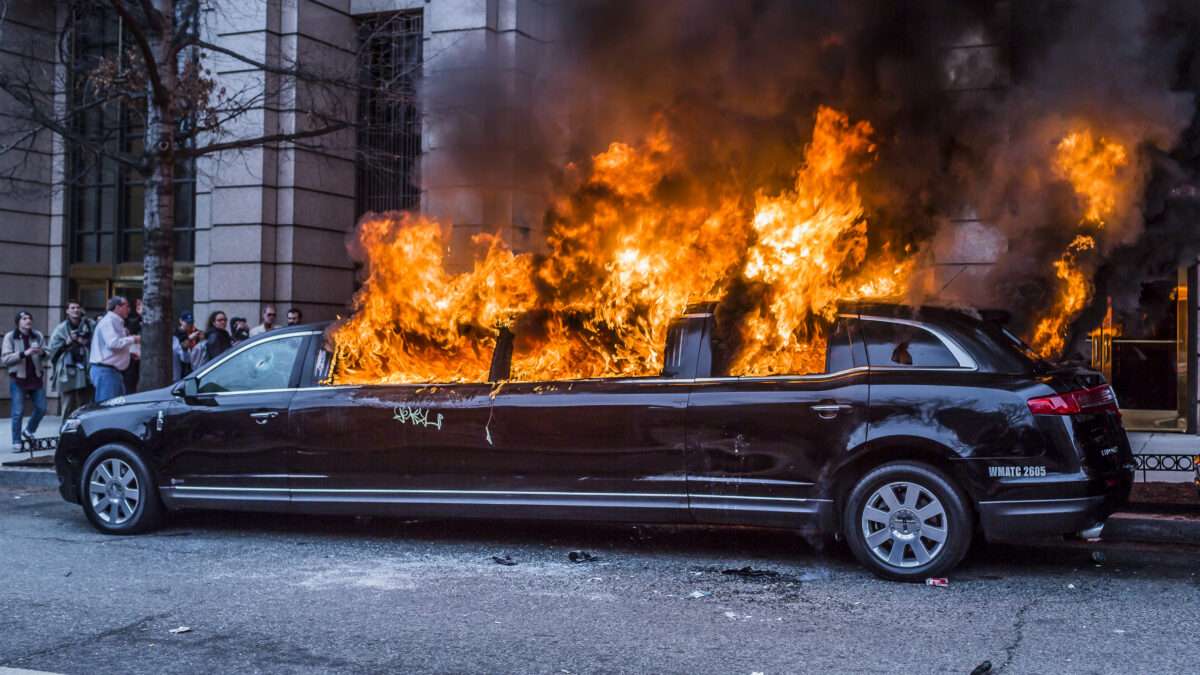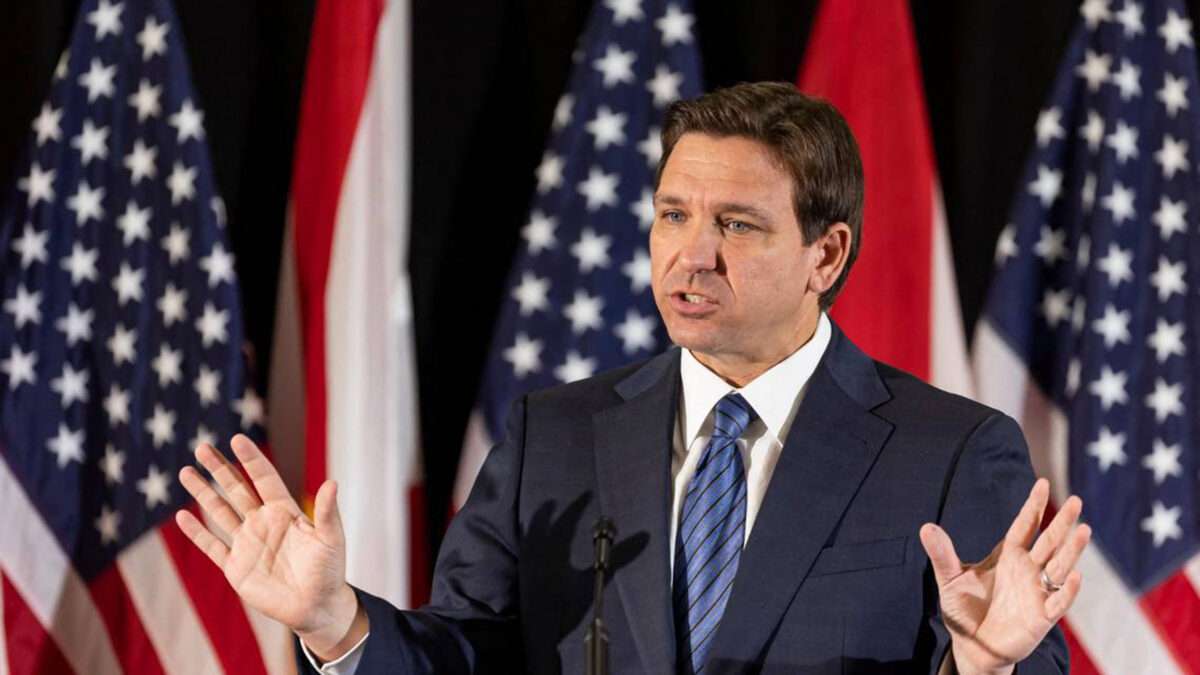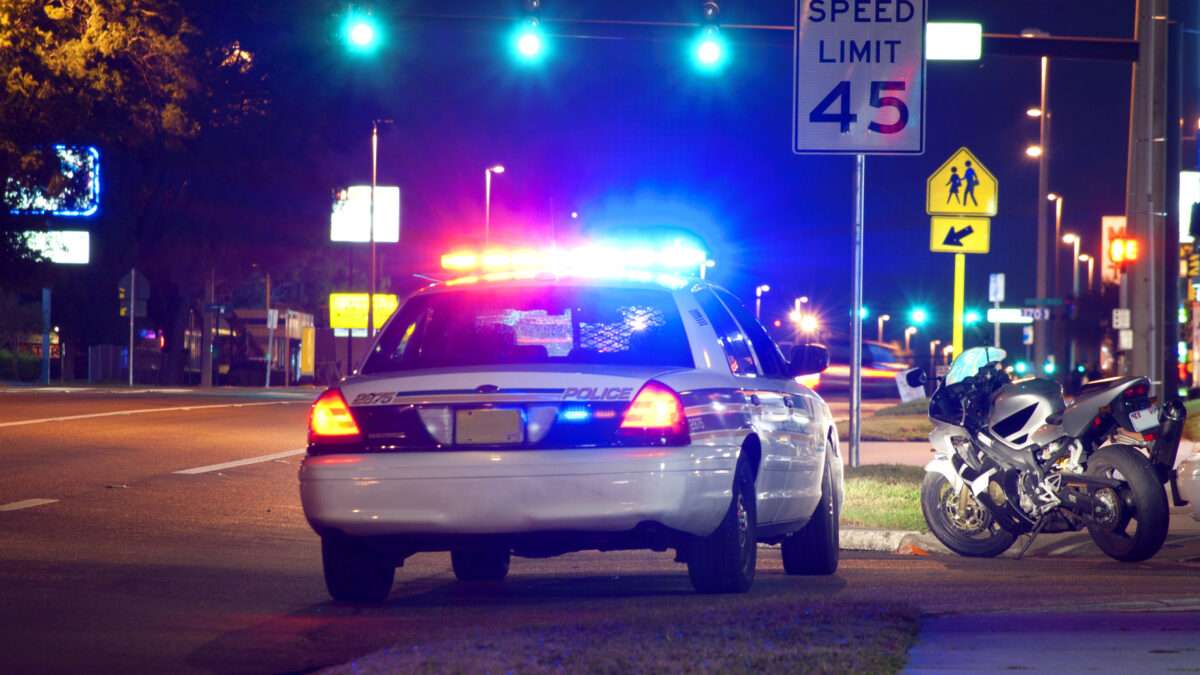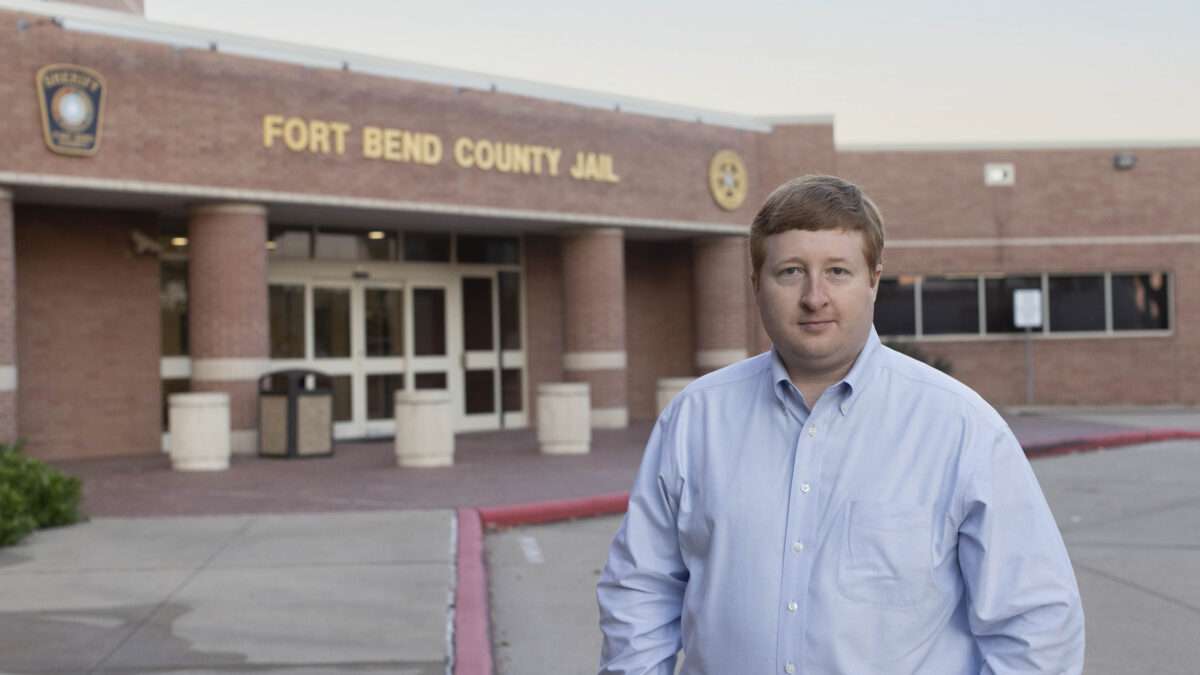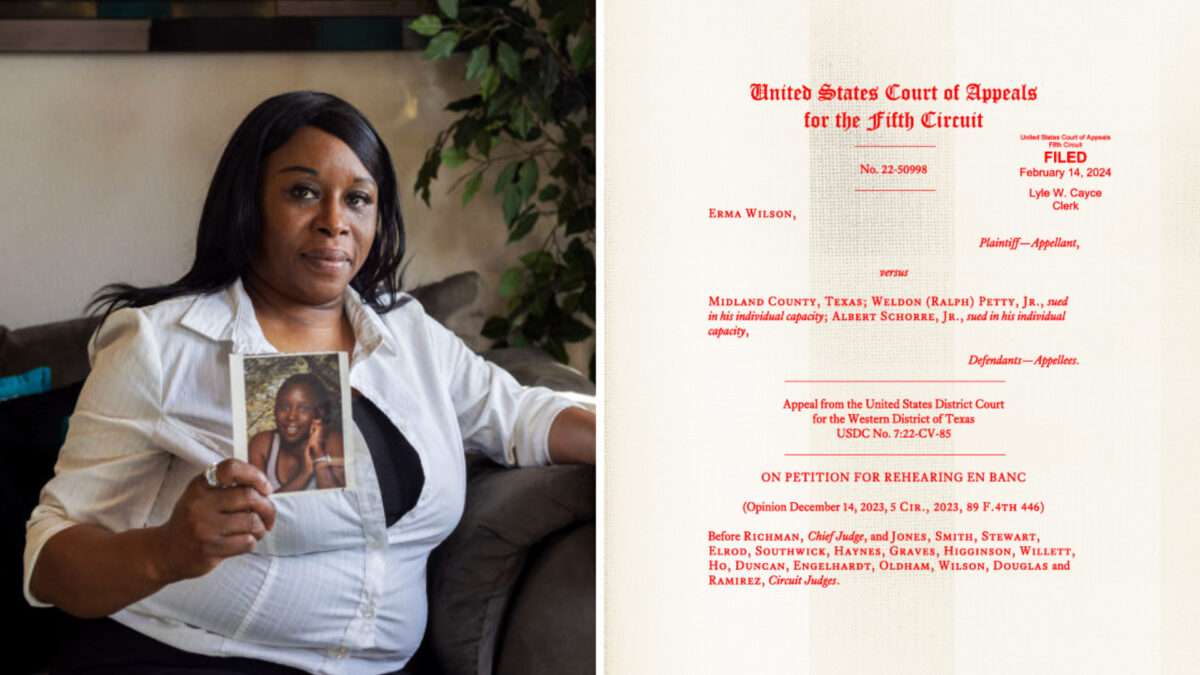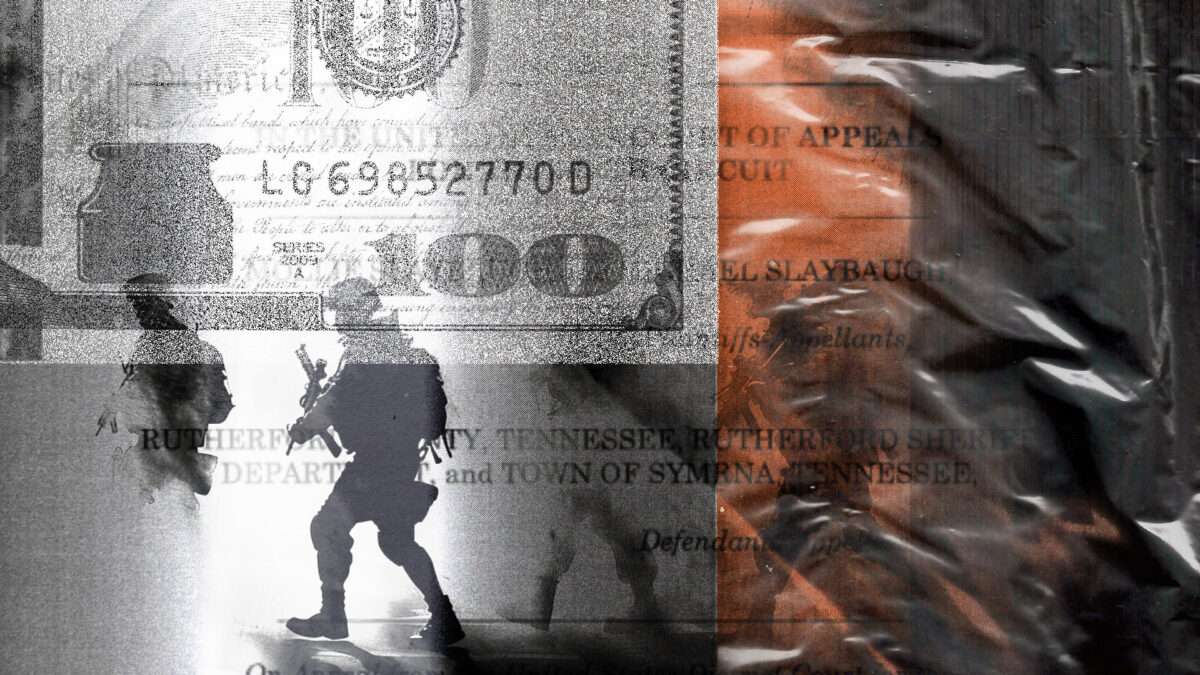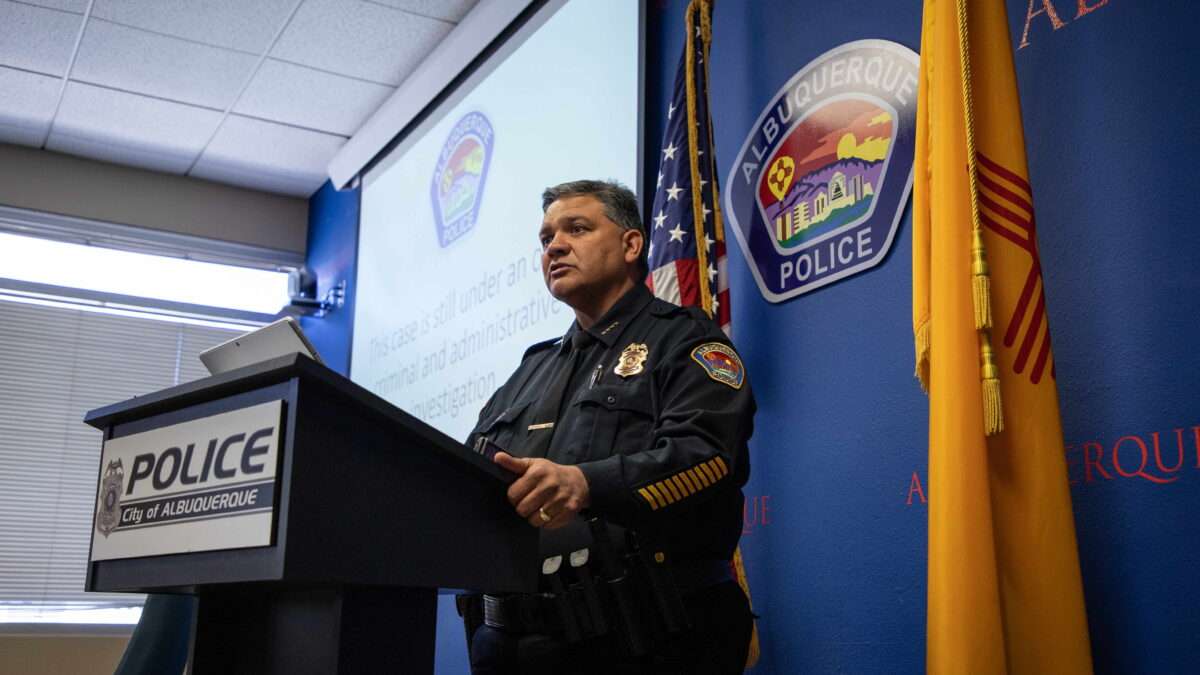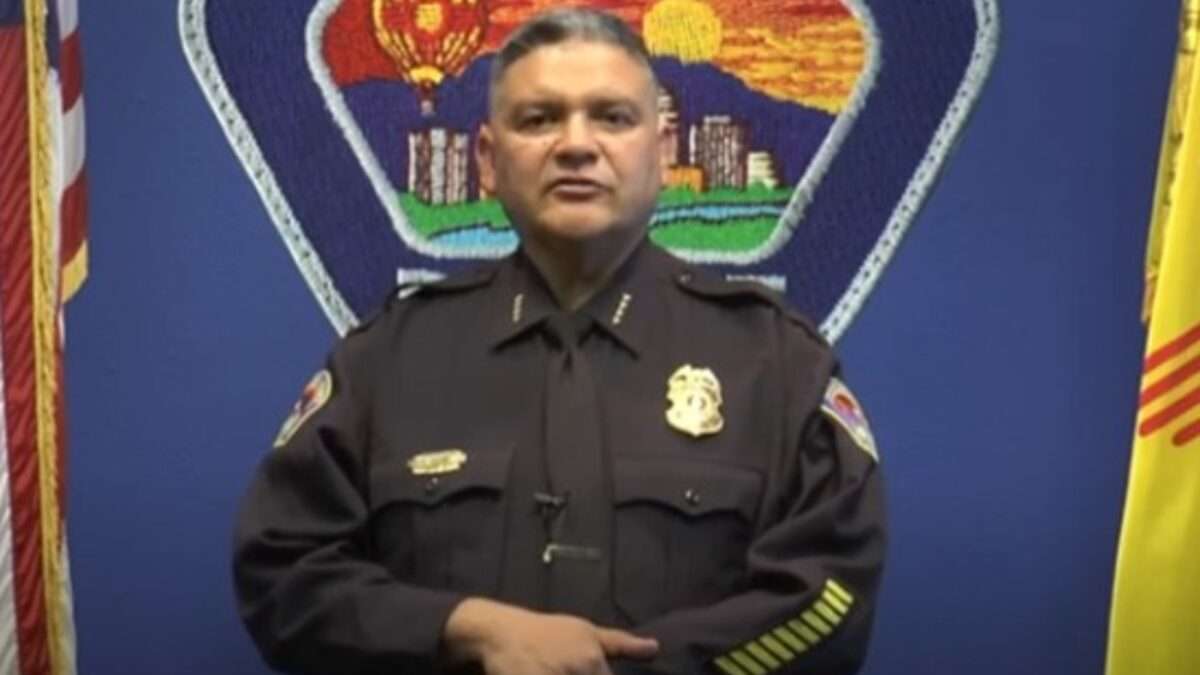Prosecutor of Anti-Trump Protesters Allegedly Withheld Exculpatory Evidence and Lied About It

After black-clad demonstrators protested Donald Trump's inauguration in an "Anti-Capitalist/Anti-Fascist Bloc" march on January 20, 2017, federal prosecutors in Washington, D.C., charged more than 200 of them with rioting. While 21 defendants pleaded guilty, all of the other cases ended in acquittals, mistrials, or charges dismissed with prejudice. One reason for that fiasco, according to recently filed disciplinary charges, was the discovery that the federal prosecutor who oversaw the cases persistently withheld exculpatory evidence and repeatedly lied about it to judges and defense attorneys.
In a "specification of charges" filed with the D.C. Court of Appeals Board of Professional Responsibility last month, Disciplinary Counsel Hamilton P. Fox III alleges that Jennifer Kerkhoff Muyskens, who is now a federal prosecutor in Utah but previously worked at the U.S. Attorney's Office for the District of Columbia, violated six rules of professional conduct while trying to convict "DisruptJ20" protesters, including many who had not participated in vandalism or violence. Muyskens "knew that most defendants did not commit violent acts themselves," Fox notes, but "she argued that these defendants were still liable for felony rioting and felony property destruction because they joined a criminal conspiracy to use the protest march to further the violence and destruction that occurred."
To support that theory, Muyskens presented video of a DisruptJ20 planning meeting that had been clandestinely recorded by an "operative" from Project Veritas, a conservative group that frequently has been accused of using misleadingly edited videos to portray progressive and leftist organizations in a negative light. Although Muyskens "understood Project Veritas had a reputation for editing videos in a misleading way," Fox says, she initially concealed the source of the video, saying in court that "who provided it is irrelevant." And although Muyskens "knew that Project Veritas had omitted and edited some of its videos" before releasing them, Fox adds, she "did not request or obtain Project Veritas's missing videos or unedited footage."
According to Fox, Muyskens and Metropolitan Police Department (MPD) Detective Greggory Pemberton edited the meeting footage in ways that bolstered the prosecution's case, and Muyskens covered up the extent of those edits. Fox says Muyskens also withheld Project Veritas videos of other DisruptJ20 meetings that would have been helpful to the defense, pretending that they did not exist. And she allegedly concealed the fact that Pemberton, in testimony to a grand jury, had erroneously identified one of the DisruptJ20 defendants as a woman who appears in the video of the planning meeting.
According to the Supreme Court's 1963 ruling in Brady v. Maryland, due process requires prosecutors to share potentially exculpatory evidence with the defense. Fox says Muyskens violated that rule by excising footage and withholding videos that could have been useful in rebutting the prosecution's case.
The material that Muyskens and Pemberton excised from the planning meeting video included footage that would have revealed its provenance. They also cut footage of a phone call in which a Project Veritas infiltrator told a colleague, "I don't think they know anything about the upper echelon stuff."
The excised footage "revealed that the video was filmed as part of Project Veritas's infiltration of DisruptJ20, which tended to undermine the credibility and reliability of the government's evidence," Fox writes. "In addition, the operative's post-meeting report indicated that some DisruptJ20 protest organizers did not know anything about plans or decisions that were being made by an 'upper echelon.' This lack of knowledge supported the non-violent defendants' theory that, assuming a plan to riot existed at all, only a small group was involved, which they knew nothing about. Alternatively, if the operative was discussing protest organizers being unaware of Project Veritas's 'upper echelon' plans, the statements supported…claims that Project Veritas conspired to frame DisruptJ20 defendants for third-party violence, including by possibly inciting violence themselves. Both judges who later considered the issue…found that the complete, unedited footage was exculpatory."
The videos that Muyskens withheld included evidence that, contrary to the prosecution's narrative, the DisruptJ20 protest was supposed to be peaceful. Those videos "were exculpatory," Fox explains, "because they showed that DisruptJ20 planning meetings consistently involved training and instructing protesters how to participate in its unpermitted 'Actions,' including the anti-capitalist march, as non-violent protests, using nonviolence and de-escalation techniques, which supported the non-violent defendants' claim that their intent was merely to peacefully protest."
The undisclosed videos also "showed Project Veritas operatives discussing their infiltration operation of DisruptJ20, which supported the defense's theory that Project Veritas conspired to blame DisruptJ20 for others' misconduct," Fox notes. "For example, the undisclosed videos showed Project Veritas operatives discussing—before the Inauguration protests—how they were providing information on DisruptJ20 to the FBI, how there was likely to be violence from 'outside influencers,' and how DisruptJ20 would 'catch the blame' for outsiders' misconduct because the FBI was 'going to say' that they incited it."
In court, Fox says, Muyskens "falsely said that the government had made only two edits, which were both to redact the identity of the videographer and an undercover officer," and "that, other than the two redactions, the defense had the same videos as the government." She "falsely told the court that she had provided defense counsel with 'the full entirety of those videos from that day.'"
According to Fox, "Pemberton testified falsely that Project Veritas had produced only the four disclosed video segments of the [planning meeting video]" and that "the only editing the government did was to combine the first three video segments into one exhibit to be played at trial." Muyskens and Pemberton "did not disclose how they had edited the original videos they received from Project Veritas," and they did not "disclose that they had omitted from discovery many other videos Project Veritas videos of DisruptJ20's planning meetings."
Muyskens told a judge that Project Veritas had "provided unedited video" at Pemberton's request and that "we posted the video" to the discovery portal. Those statements, Fox says, "were false and misleading." Muyskens also "falsely said that other than redacting the identities of the Project Veritas operative and [the undercover officer], 'the defense has the exact video we have.'" The judge "later found that [Muyskens] 'left a clear impression' that she had disclosed everything that Project Veritas had produced."
Muyskens told another judge that "the government had 'provided the clips as we have them'" and that "'the only editing' by the government 'was to combine the three clips' of the anti-capitalist 'breakout' into a single video exhibit for trial." Those statements also "were false and misleading," Fox says.
Muyskens eventually "acknowledged that the government had additional, undisclosed Project Veritas videos of DisruptJ20's planning meetings." But she "mischaracterized them and falsely suggested that they were irrelevant."
During the investigation of her conduct, Fox says, Muyskens "repeated her false statements and material omissions" regarding the video edits, the withheld videos, her suppression of "relevant information and evidence," her failure to produce grand jury transcripts from the misidentified defendant's case, her "misrepresentations and omissions to the grand jury, the defense, and the court," and her failure to "correct known misrepresentations to the court." She also "made additional false statements and material omissions to falsely explain her conduct." She claimed, for example, that the undisclosed videos "were irrelevant and did not discuss the anti-capitalist march."
Fox says Muyskens' actions violated the District of Columbia's Rules of Professional Conduct in half a dozen ways:
1. She allegedly violated Rule 3.3(a) by "knowingly making false statements, offering false evidence, and failing to correct material false statements to the court."
2. She allegedly violated three sections of Rule 3.4 by "obstructing the defense's access to evidence and altering or concealing evidence, or assisting another person to do so when she reasonably should have known that the evidence was or may have been subject to discovery; knowingly disobeying the court's direct orders to produce information in the government's possession without openly asserting that no valid obligation existed; and/or failing to make reasonably diligent efforts to comply with the defense's discovery requests."
3. She allegedly violated two sections of Rule 3.8 by "intentionally avoiding pursuit of evidence and information because it may have damaged the prosecution's case or aided the defense; and by intentionally failing to disclose to the defense, upon request and at a time when use by the defense was reasonably feasible, evidence and information that she knew or reasonably should have known tended to negate the guilt of the accused or mitigate the offense."
4. She allegedly violated Rule 8.4(a) by "knowingly assisting or inducing another to violate the Rules of Professional Conduct and/or doing so through the acts of another."
5. She allegedly violated Rule 8.4(c) by "engaging in conduct that involved reckless or intentional dishonesty, misrepresentations, deceit, and fraud, which misled the grand jury, the defense, the court, the government, and disciplinary authorities about the
evidence in the government's possession and the government's conduct."
6. She allegedly violated Rule 8.4(d) by "engaging in conduct that seriously interfered with the administration of justice."
Possible sanctions against Muyskens range from "temporary suspension of her law license to full disbarment," Washington City Paper notes. The Washington Post reports that lawyers for Muyskens did not respond to requests for comment and that "Pemberton also did not respond to an inquiry." The U.S. attorney's offices in D.C. and Utah "declined to comment." So did the MPD, which "would not say whether the department has opened an investigation of Pemberton, who now chairs the police labor union."
The failed prosecutions and the disciplinary charges against Muyskens are not the only embarrassments stemming from the Inauguration Day march. In 2021, the Post notes, "the D.C. government agreed to pay $1.6 million to settle two lawsuits" by protesters who argued that the police response to the DisruptJ20 march violated their First Amendment rights.
"It speaks volumes that the District has chosen to settle rather than defend MPD's obviously unconstitutional actions in court," Jeffrey Light, one of the protesters' attorneys, said when the settlement was announced. Scott Michelman, legal director at the American Civil Liberties Union of the District of Columbia, added that "MPD's unconstitutional guilt-by-association policing and excessive force, including the use of chemical weapons, not only injured our clients physically but also chilled their speech and the speech of countless others who wished to exercise their First Amendment rights but feared an unwarranted assault by D.C. police."
The post Prosecutor of Anti-Trump Protesters Allegedly Withheld Exculpatory Evidence and Lied About It appeared first on Reason.com.


